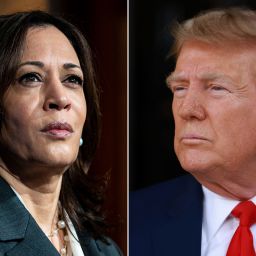The American electoral process holds little intrigue for me as a European and for several compelling reasons. First and foremost, I do not participate in voting; as a foreign citizen, I refuse to relinquish my agency to the whims of others or the maneuvers of a foreign government. Why should my life depend on the vote of an accountant in Idaho or a banker in Chicago? This sentiment is not rooted in national pride — a concept that holds scant meaning for me — but rather in a proud civic responsibility intertwined with the long-lost ideal of universal fraternity. Though U.S. politics affects the whole world, it would be less impactful if we think and act as if it wouldn’t. Let’s break free from Big Brother overseas; let’s shed the psychological, military, and cultural complex of inferiority and pursue independence.

Moreover, the American vote fails to resonate with me because the candidates presented are mere puppets, financially beholden to powerful plutocrats who have bought them in a façade of popular legitimacy. While Donald Trump emerged victorious in the primaries, garnering a semblance of grassroots support, Kamala Harris bypassed this crucial step, having been handpicked by an electoral committee in a somewhat opaque process. Is it different in European elections? Not so much, especially recently. However, I still have a little chance to participate in politics, whether in Europe, Italy, or Venetia.
I wonder how Americans dare to blame other governments and countries for not being “democratic” instead of addressing their own highly flawed and arrogant institutions. Open your eyes, Westerners! As time passes, we are no longer what we used to be. Democracy has never been a completed project. Nonetheless, until a few decades ago, we could see progress and nurture hope for the future. The system has since deteriorated and continues to do so at an alarming rate. We must accept and cope with this reality instead of reacting with arrogance and violence.
At their core, both American major candidates are products of entrenched dynasties of oligarchs operating behind the curtain, with little input from the populace. Voter turnout is low, and representatives of organized interests sway a significant portion of the electorate.
If I were a U.S. citizen and chose to cast my ballot instead of abstaining, I would likely vote for Jill Stein of the Green Party, though hoping for a Harris victory. The Democratic candidate would favor my social class more than the Republican. However, as a European, I would prefer Trump to win, no matter how distant his attitude and language are from mine. He claims to focus on domestic policies and withdraw from international entanglements, which translates into waging wars worldwide. Among the two leading candidates, he seems more unpredictable and less assertive in foreign affairs, particularly concerning European relations.
As a metaphor, while I would never accept Trump in my club, I might consider hiring him as a bouncer. If he wins, he won’t dismantle the imperial powers that conceal themselves behind the façade of American phony democracy. Furthermore, he is also subject to the influences of oligarchs, who are as self-referential as Harris’s backers.
The ongoing conflict in the Middle East serves as a glaring testament to the U.S. government’s disarray and its inability to adhere to a cohesive foreign policy. Israel operates as an extension of the Euro-Atlantic oligarchy, appearing out of control due to internal discord masked by the brutality of a cowardly war that primarily targets civilians and local militias. This conflict has drawn sharp condemnation even from the United Nations, which the USA promoted eighty years ago and now belittles alongside Israel and Europe. Isn’t that a humiliation?
The recent classified information leaks concerning plans for military action against Iran further fuel suspicions of infighting within the Euro-American complex. Europe plays no role; instead, the Euro-Atlantic oligarchy has merged indistinguishably on both sides of the ocean, successfully imposing sympathetic governments across major European nations and institutions.
Against this backdrop, only a handful of dissenting voices challenge the Euro-Atlantic oligarchy. Some of these voices (such as Orbán, AFD, and RN) are questionable in themselves and way far from my beliefs. Nonetheless, I reject the mainstream media narratives that seek to ridicule, marginalize, and criminalize them. This attitude is dangerous as it does not foster any possible democratic evolution of radical dissent. The ruling, short-sighted oligarchy relies only on repression. Unfortunately, I do not see viable progressive alternatives, and the scenario appears gloomy.
In this multifaceted geopolitical landscape, Europe and the world stand to gain from a president like Trump, who, despite his instability, unveils some of the deeper dynamics at play and challenges the nefarious ties among the Euro-Atlantic ruling classes. These elites, no longer able to assert their dominance through cultural or principled means, increasingly rely on military force to maintain their global hegemony.



